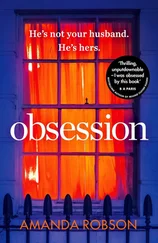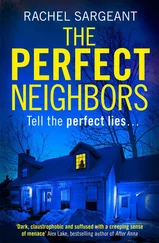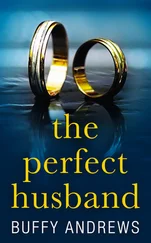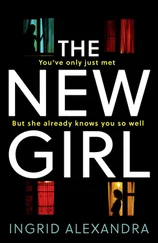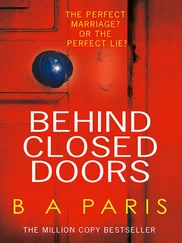I was starting to get the message.
* * *
Jerry Lindsay lived in a 1950s colonial style house on the north side of town. His wife, Beatrice, answered the front door and led me to their sunroom where the retired sheriff was drinking coffee and reading the paper.
At sixty-three-years-old, he was still rock-solid: six-foot-plus frame, broad shoulders, and large, rough hands that had clearly done their share of work over the years. He looked every bit the retired cop with his thick silvery hair, matching mustache, and an intense, unyielding stare that I imagined had proven useful in the interrogation room.
He stood and shook my hand—nearly squeezing the life out of it—then pointed at the chair across from him. It felt more like an order than an act of hospitality.
I slipped my pad and pen from my pocket as I took my seat.
“The Kingsley case,” Lindsay said, filtering his words through mild laughter. “What on earth made you wanna pick up and come all the way out here for that?”
“It fits with a story I’m doing on missing children.”
He grunted. “Huh. No missing kids over there in California?”
“We’re a national magazine, Sheriff. I cover crimes all over the country.”
He held my gaze, arched a brow, went silent.
I said, “Did you ever figure out what Lucas did with the body?”
“No, and I doubt we ever will.”
“Why’s that?”
“I’m guessing it’s because he did a damn good job of hiding it.” The tone was smug, the look on his face even more so.
I ignored both and kept pushing. “How far did your search go?”
“From county line to county line.” He ran a hand through his hair, gazed out the window. “That little boy is buried in the desert somewhere. I’m sure of it.”
“What makes you so sure? Was the conclusion based on any evidence?”
He shot his head back toward me. “No, it was based on common sense.”
“Not sure I follow.”
“As in, it’s the perfect place to get rid of a body. Following me now?”
I nodded tentatively, forced a tolerant smile. “So… he never alluded in any way to how he actually disposed of it…”
“Nope.”
“Refused?”
“I wouldn’t say refused.”
“What then?”
“Claimed he was innocent, said he had nothing for us.”
“Was there a plea bargain offered in exchange for the information?”
“Of course.”
I could almost hear the unvoiced you idiot at the end of that sentence. I kept my eyes on my notes. “What about the items found in his apartment?”
“What about ‘em?”
I looked back up at him. “Did it seem odd that he left incriminating evidence lying around?”
“Well first of all, it wasn’t lying around.”
“Where was it?”
He paused, shot me a blank stare. “And second, predators keep mementos from their crimes all the time.”
“But a knife? And shoes and underwear with the victim’s blood on them? Seems pretty risky.”
In an impressively patronizing voice, he said, “Mr. Bannister, do you know anything about crime investigations?”
I hesitated, gave him my most civilized smile. “Only what I’ve covered in my twenty-some years of writing about them. Why?”
“I see,” he said, appearing amused. “Well, there were only traces of blood on the knife. Same goes for the underwear and shoe. I doubt he ever noticed.”
“Okay, but still a risk, right?”
A condescending laugh. “Nobody said the guy was a rocket scientist.”
I glanced down at my notes. Irascible? CJ was being kind. Getting information from this guy was like trying to eat soup with a knitting needle. I circled back around to the question he’d ignored the first time. “And where did you say the items were hidden?”
“I didn’t.”
“So where were they exactly?”
“I don’t recall exactly .”
I pretended to take some notes but instead wrote the word asshole repeatedly. Then I took a breath and reloaded for another round. “Newspaper said the tip was anonymous.”
“Okay...”
“Did you ever find out who it was?”
“Nope, and didn’t much care because it led us right to our suspect. Everything added up. Can’t ask for more than that.”
“Was the tipster male or female?”
He eyed me but said nothing.
“Sheriff?”
Hesitation, and then, “Think it was a male.”
“You don’t know?”
“No, I don’t recall . There’s a difference.”
I reached into my pocket for the copy of the Kingsley article I’d printed up. Handed it over to him. He lifted his reading glasses from the side table, put them on, studied it.
I said, “See the necklace Nathan’s wearing in the photo?”
He peered over the tops of his glasses at me. “The Saint Christopher medal.”
“Was he wearing it when he was kidnapped?”
“According to the parents, he was.”
“Did you ever find it?”
“Nope.”
“Any idea where it might have gone?”
“We never saw it.”
“So you don’t know,” I confirmed.
“We never saw it,” he repeated.
This game had grown tiresome. I should have been gracious, should have walked away, especially after CJ’s warning, but that just wasn’t me. I decided it was time to turn up the heat on Jerry Lindsay.
Pretending to carefully weigh my words, I said, “You know, sheriff, there’s one thing I still can’t figure out, and that’s how Lucas managed to take the boy without anyone seeing or hearing him.”
“There was the mailman.”
“No, I’m talking about during the incident. Or even shortly thereafter.”
“Made a clean getaway behind the house.” He shrugged. “Nobody saw him.”
I nodded. “Yeah, I get that, but what I don’t get is this: you’ve got houses that are close together—very close—and Mrs. Kingsley only went out to the mailbox, which was, what, maybe fifty feet away?” I didn’t wait for an answer. “And the area near the back window is in line of sight of the street.”
He said with a fixed expression, “Not sure what you’re getting at.”
“How could it be that Mrs. Kingsley didn’t see or hear Lucas taking the boy?”
He shrugged. “She said she didn’t see anything.”
“And the fact she probably should have didn’t bother you?”
“ Should have is a matter of opinion, Mr. Bannister, and mine was that she was telling the truth.”
“What about the neighbors? Or commuters in the area?”
He threw his hands up. “It’s not my job to manufacture witnesses if there aren’t any.”
“I wasn’t asking you to manufacture them, just finding it odd that no one saw a three-year-old boy taken from his home in broad daylight, on a through street, in a neighborhood packed tighter than a box of matches.”
Lindsay squeezed his lips into a straight line and stood. “I think we’re finished here, Mr. Bannister.”
“Just like that?”
“I’ll walk you to the door.”
He did; in fact, I barely made it through before I heard it slam behind me.
Getting into my car, I shook my head and sighed. CJ had warned me, and now I was seeing it first-hand. Not many people wanted to talk about the Kingsley case around here, especially Jerry Lindsay.
Then I wondered what exactly he was hiding behind all that arrogance…and why.

Chapter Thirteen

Читать дальше




